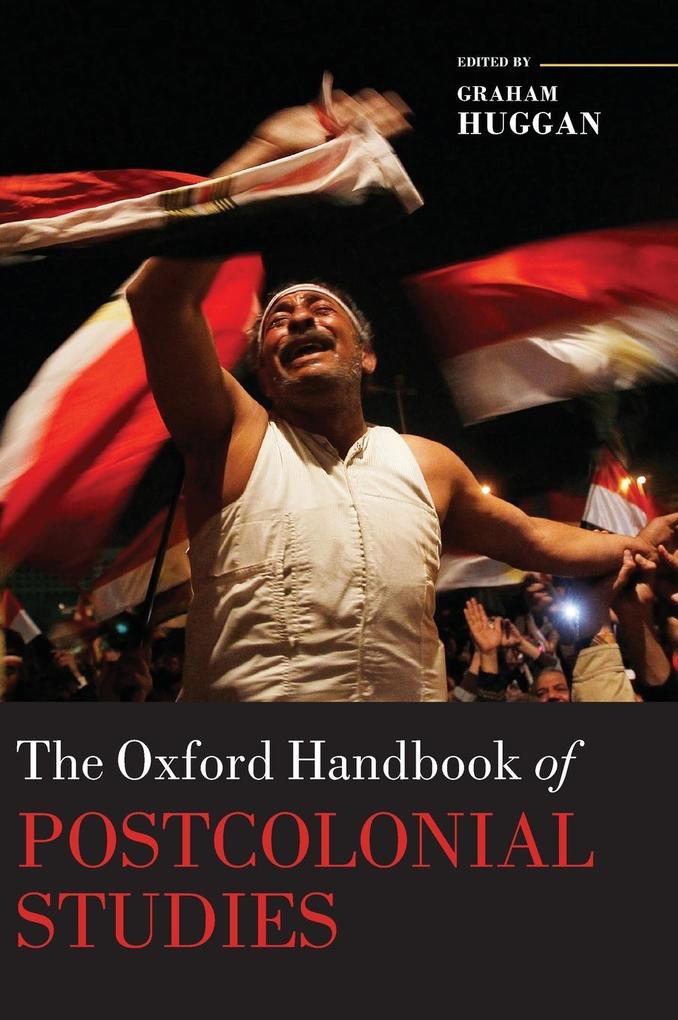
Zustellung: Mi, 30.07. - Mo, 04.08.
Versand in 2 Wochen
VersandkostenfreiThe Oxford Handbook of Postcolonial Studies is a major reference work, which aims to provide informed insights into the possible future of postcolonial studies as well as a comparative overview of the latest developments in the field.
Inhaltsverzeichnis
- General Introduction
- Section One: The Imperial Past
- Introduction
- Reason Aside: Reflections on Enlightenment and Empire
- Empires of Democracy
- The Imperial Past: Spain and Portugal in the New World
- Imperial/Colonial Metamorphosis: A Decolonial Narrative, from the Ottoman Sultanate and Spanish Empire to the US and the EU
- Empire, Islam and the Postcolonial
- Hegel, Empire and Anti-Colonial Thought
- Section One Response: Imperial Histories, Postcolonial Theories
- Section Two: The Colonial Present
- Introduction
- Violence, Law and Justice in the Colonial Present
- Renegade Prophets and Native Acolytes: Liberalism and Imperialism Today
- The Geopolitics of Knowledge and the Challenge of Postcolonial Agency: International Relations, US Policy and the Arab World
- Africa s Colonial Present: Development, Violence and Postcolonial Security
- Beyond Biopolitics: Agamben, Asylum and Postcolonial Critique
- Indigenous Inhabitations and the Colonial Present
- Section Two Response: Towards an Anti-Colonial Future
- Section Three: Theory and Practice
- Introduction
- Revisiting Resistance: Postcolonial Practice and the Antecedents of Theory
- Third Worldism and the Political Imaginary of Postcolonial Studies
- Postcolonialism and/as Translation
- Remembering Back: Cultural Memory, Colonial Legacies and Postcolonial Studies
- Postcolonialism and Popular Cultures
- Race, Racism and Postcoloniality
- Section Three Response: Theory and Practice in Postcolonial Studies
- Section Four: Across the Disciplines
- Introduction
- Modes and Models of Postcolonial Cross-Disciplinarity
- Postcolonialism and Literature
- Postcolonialism and History
- Slippery, Like a Fish : The Discourse of the Social Sciences
- At the Limits of the Secular: History and Critique in Postcolonial Religious Studies
- Postcolonialism and the Environment
- Section Four Response: Origins, outcomes and the meaning of postcolonial diversity
- Section Five: Across the World
- Introduction
- Perspectives on Globalization and Subalternity
- Postcolonialism, Globalization and the Asia Question
- Our Sea of Islands : Globalization, Regionalism and (Trans)nationalism in the Pacific
- Africa and its Diasporas
- Postcolonializing the Americas
- Irritating Europe
- Section five response: What was globalization?
- Afterword
Mehr aus dieser Reihe
Produktdetails
Erscheinungsdatum
01. November 2013
Sprache
englisch
Seitenanzahl
752
Reihe
Oxford Handbooks
Herausgegeben von
Graham Huggan
Verlag/Hersteller
Produktart
gebunden
Gewicht
1451 g
Größe (L/B/H)
249/175/48 mm
ISBN
9780199588251
Entdecken Sie mehr
Bewertungen
0 Bewertungen
Es wurden noch keine Bewertungen abgegeben. Schreiben Sie die erste Bewertung zu "The Oxford Handbook of Postcolonial Studies" und helfen Sie damit anderen bei der Kaufentscheidung.
































